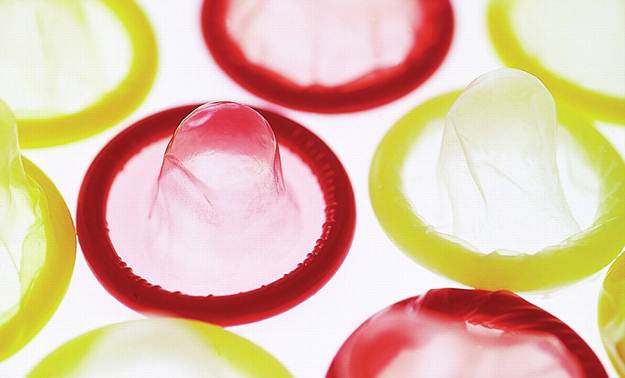It’s time to debunk the myths and
mysteries surrounding contraceptives and take control of your own fertility.
Choosing the best contraception for
you can be confusing. With such a massive array of options now available and an
even wider range of health implications to consider, it’s hard to know what’s
right for you.
Dr. Caroline Cooper, a women’s health
specialist working in contraception and sexual health clinics, believes it’s
important to discuss your options regularly with your nurse ore contraception
clinic. ‘Having a choice of different types of contraception to suit different
stages of your life is important,’ says Dr. Cooper. Whether you’re single or
planning a family, it’s an important decision.

Use our easy-to-follow no-nonsense
guide to explore all the options and decide if it’s time you made a change.
Short-acting contraceptives
Combined Pill
Oestrogen and progestogen stop
ovulation, thicken cervical mucus and thin the lining of the womb.
Pros: As well as making your periods
lighter, more regular and less painful, the Pill can reduce your risk of cancer
of the ovaries, uterus and colon. It can also be taken until the menopause by
healthy non-smokers.
Cons: Your risk of cervical and breast
cancer, as well as blood clots, could increase. Side effects such as headaches,
mood swings, nausea and breast tenderness are also quite common in those who
take it, and it can also stop working if you’re talking certain medicines, or
are sick or suffering from diarrhea.
Condoms
Male and female condoms prevents sperm
from entering the woman’s body altogether.
Pros: With no side effects and protection
from sexually transmitted infections, condoms are a great choice if you aren’t
in a long-term relationship.
Cons: There is a small risk that a condom
might split; if it does, seek emergency contraception Remember that the man
must withdraw straight after sex if you’re using a male condom and if you’re
using a female condom, it’s important to make sure the penis actually enters
it.
Progestogen-only Pill
This Pill works in the same way as the
combined Pill, but only contains the hormone progestogen.
Pros: It’s suitable for women over 35 who
smoke, mothers who are breastfeeding and those who can’t take oestrogen.
Cons: It has to be taken at the same time
every day: taking it over three hours late will render it ineffective, as will
certain medicines, sickness and diarrhea. Common side effects include spotty
skin, breast tenderness, weight change, headaches and infrequent or more
frequent periods.
More short-term options
Patch: These weekly patches can
make your periods more regular, lighter and less painful (great!), but you
could suffer headaches, nausea, mood swings, breast soreness and skin
reactions.
Vaginal
ring: This
hormone-releasing ring is inserted into your vagina. Temporary side effects
include initial breakthrough bleeding, increased vaginal discharge, nausea and
breast tenderness.
Diaphragm: Cystitis is a common side
effect of this silicone cap and it has to be left in for six hours after
intercourse.
Long-acting contraceptives
Injection
Progestogen is injected into the body,
which stops ovulation, thickens cervical mucus and thins the lining the the
womb.
Pros: Each injection lasts for eight or 12
weeks, depending on which one you go for. It’s a good bet if you think you
might forget to take your pill or of you can’t use contraception that contains
oestrogen. And, it doesn’t stop working if you’re taking other medicines or
suffering from vomiting and diarrhea, unlike most others.
Cons: Once the hormone is injected, any
side effects have to be endured for the length of the contraceptive protection.
Your periods may stop, become irregular or last longer than normal, and it may
take time for your menstrual cycle and fertility to return to normal.
Implant
A small rod is implanted into the
upper arm, which releases progestogen and works in the same way as the
injection.
Pros: You can have the implant put in place
by your doctor or at a sexual health clinic. The rod can stay in your arm for three
years, but you do have the option to get it removed earlier if you want to.
Your fertility should return to normal straight away once removed.
Cons: A small procedure is required to put
the implant in place. It might make your periods longer or affect their
regularity, or it could make them stop completely, plus other medicines could
interfere with is protection. Unfortunately, acne is also a common side effect.
IUS and IUD
The intrauterine system (IUS) and the
intrauterine device (IUD) are inserted into the uterus, and release
progestogen.
Pros: The IUS can stay in place for up to
five years and the IUD for five to 10 years, but both can be removed before
that time’s up. Your periods will become much lighter, shorter and less painful
than usual with the IUS. Neither stop working when taking other medicines.
Cons: The insertion of both the IUS and the
IUD can be quite uncomfortable and during the first 20 days after it’s been
inserted there is a small chance of infection. In contrast to the IUS, the IUD
can actually make your periods heavier, longer and more painful.